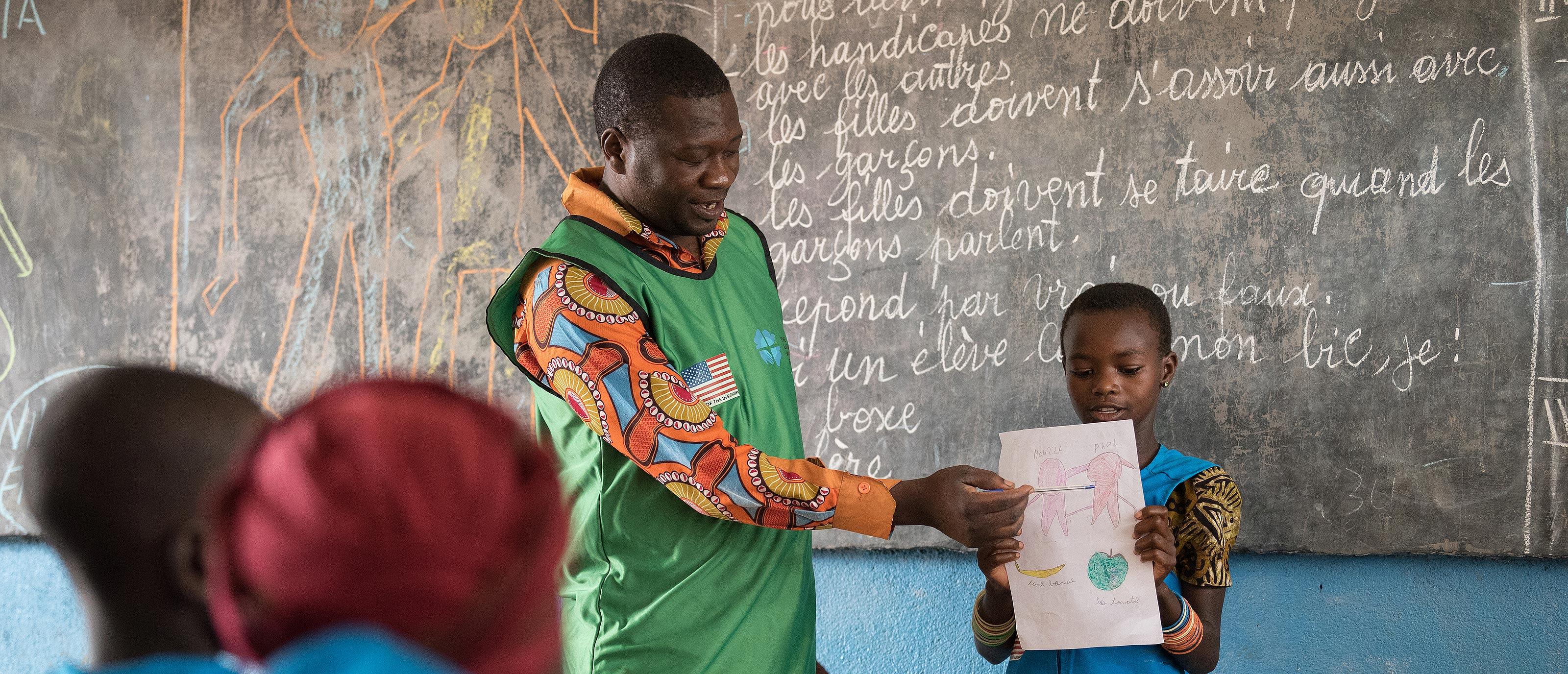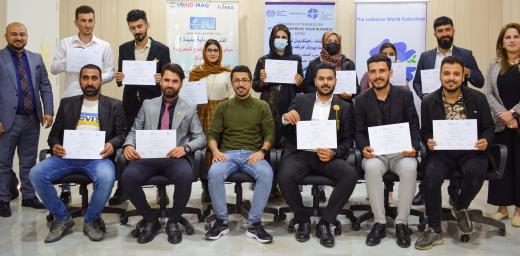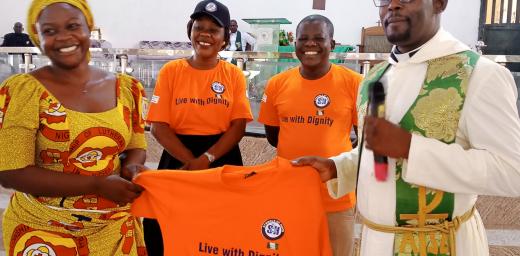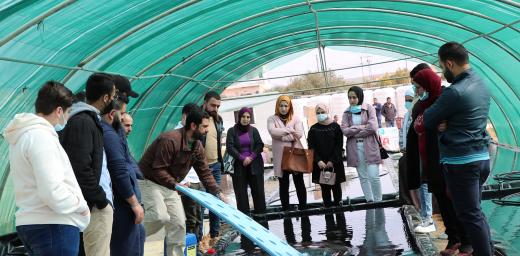’It’s all interlinked’ – LWF Cameroon supports livelihoods and education for CAR refugees
24 Jul 2019

Painter and consulting artist Dogari Samson teaches children how to make drawings as a way to share messages of peace. All photos: LWF/Albin Hillert
Education for peace and social cohesion
(LWI) - With the influx of more than 12,000 refugees from the Central African Republic (CAR), Borgop – a village of less than 1,000 native inhabitants in the Adamaoua region of Cameroon – is under stress.
Located some 60 kilometres from the border to CAR, the village has become host of a continuous stream of refugees, with new arrivals still ongoing.





